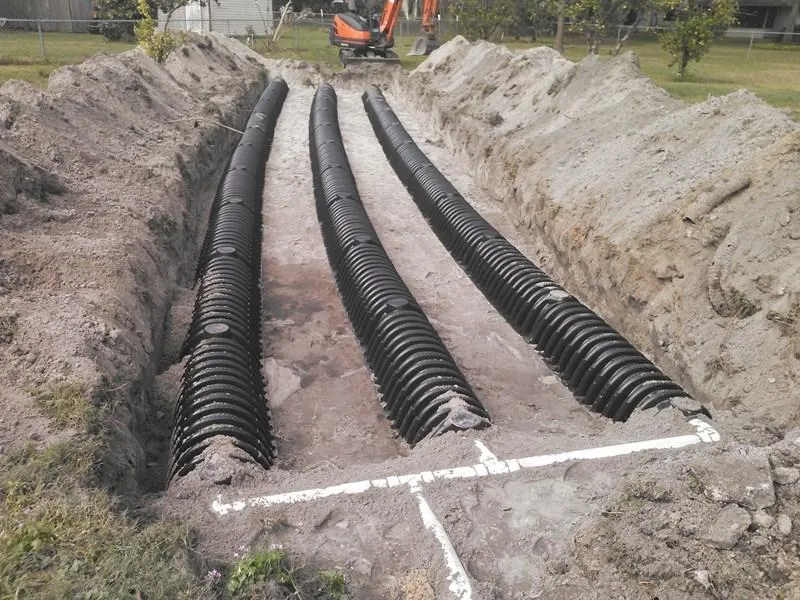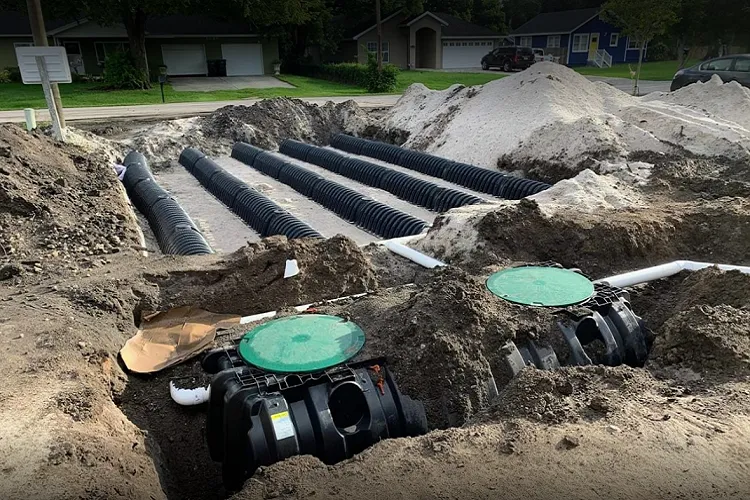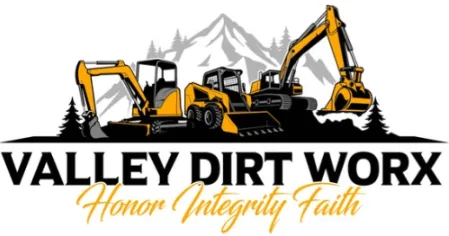Drain Field Replacement Near Raleigh County, West Virginia
Valley Dirt Worx, LLC is Committed to superior quality and results!

AVOID COSTLY MISTAKES:
Do NOT hire an excavating contractor without first reading our free guide:
The ULTIMATE Excavation & Septic "Success Guide."

Understanding Drain Field Replacement Near Raleigh County, West Virginia
If you live in Raleigh County, West Virginia, and rely on a septic system, your drain field plays a huge role in keeping things running smoothly. It’s easy to forget about it—until something goes wrong. That’s when you start noticing foul odors, soggy spots in the yard, or drains that back up for no obvious reason. Sound familiar? You might be due for a drain field replacement near Raleigh County. But what exactly does that involve? Why is it important? And how do you even go about hiring someone to do it the right way? This guide will walk you through it all—from benefits to the process—so you can make confident, informed decisions.
How Can We Help?


What Exactly Does Drain Field Replacement Near Raleigh County Involve?
A drain field (also called a leach field) is the part of your septic system that filters and disperses wastewater into the soil. Over time, this field can get clogged, saturated, or simply wear out. Replacing it involves more than just digging and dumping gravel. It requires a professional evaluation, permits, careful excavation, and proper installation based on local soil conditions.
In Raleigh County, where terrain and groundwater levels can vary from one property to another, drain field replacement requires local knowledge. Professionals familiar with this area understand what systems work best and how to avoid future failures.
Why Homeowners in West Virginia Need to Pay Attention
West Virginia’s mix of rolling hills, clay-heavy soil, and seasonal rainfall patterns can put extra stress on septic systems. That means your drain field has to work harder—and might fail sooner if it's not properly maintained. A failing field isn’t just a nuisance. It’s a health hazard and a potential environmental issue. If your home is experiencing slow drains, persistent odors, or standing water above the septic field, it’s time to look into a drain field replacement near Raleigh County. Acting early can save you from more costly repairs down the line.
7 Big Benefits of Replacing Your Drain Field
Still on the fence about making the investment? Here’s what you stand to gain:
1. Protects Your Property Value
A home with a working septic system is more attractive to buyers and appraisers. A failed drain field, on the other hand, can tank your resale potential fast.
2. Stops Contamination
Leaky or saturated fields can send raw sewage into your yard or even your water supply. Replacing the system eliminates that risk.
3. Restores Indoor Comfort
Backed-up drains and funky smells are no way to live. A new drain field restores your home to the comfort level you expect.
4. Improves Efficiency
Older systems often don’t meet modern efficiency standards. A new setup can reduce the risk of backups and extend the life of your septic system overall.
5. Helps the Environment
Proper wastewater treatment means fewer pathogens or pollutants entering the ground. That protects your local soil and water sources.
6. Complies with Local Codes
Raleigh County and the state of West Virginia have clear septic regulations. A professional drain field replacement ensures your home is up to code.
7. Peace of Mind
Knowing your system is working as it should—especially during heavy rain or cold winters—lets you focus on living, not worrying.
See Our Excavation & Septic Services

✔️Commercial Excavation
✔️Residential Excavation
✔️Swimming Pool Excavation
✔️Demolition
✔️Large Pond Construction
✔️Small Pond Construction
✔️Dozer Work
✔️Septic Inspections
✔️Septic Installs Traditional Systems
✔️Drain Field Replacement
Quality Services Launched FAST!

✔️Forestry Mulching
✔️Grading
✔️Lot Clearing
✔️French Drains
✔️Retaining Walls
✔️Drainage Systems
✔️Concrete Flatwork - Driveways, Sidewalk, Foundations
✔️Foundation Repairs
✔️Full Site Preparation
✔️Trenching
✔️Utilities Trenching
What Are You Waiting For?
How to Hire the Right Team for Drain Field Replacement Near Raleigh County
Choosing the right professional matters just as much as replacing the system itself. Here’s a step-by-step breakdown of how to hire the right people:
Step 1: Research Local Providers
Look for specialists who are familiar with drain field replacement near Raleigh County. Local experience is key. They’ll understand the soil types, terrain, and permitting process specific to your area.
Step 2: Check Licensing and Insurance
Always ask for proof of licensing and insurance. In West Virginia, septic professionals should be registered with the appropriate health departments and follow environmental guidelines.
Step 3: Ask for Site Evaluations
A qualified contractor should visit your property, inspect the existing system, test the soil, and suggest a plan tailored to your land. Be cautious of anyone giving quotes over the phone without seeing your site.
Step 4: Review the Quote Carefully
Drain field replacement costs can vary depending on soil conditions, system design, and materials used. Get everything in writing—permits, materials, labor, timelines, and cleanup.
Step 5: Get Permits Secured
Most drain field replacements in Raleigh County require a permit through the local health department. A professional will handle this part, but it’s worth confirming they include it in the scope of work.
Step 6: Understand the Timeline
The job usually takes a few days to a week, depending on weather and site complexity. Make sure you’re clear on when the crew will start and how long you’ll be without full septic service.
What Happens During the Drain Field Replacement Process?
The process isn’t just digging and dumping gravel—it’s far more precise. Here’s a general breakdown:
• Site Assessment – Soil percolation testing, system layout, and health department involvement.
• Old System Removal – If necessary, the existing drain field will be excavated and disposed of properly.
• Excavation – The new drain field trenches are dug to meet proper depth and spacing regulations.
• Installation – New pipes or chambers are installed with gravel, sand, or other approved media.
• Backfill and Grading – The area is covered and shaped to allow proper drainage and prevent pooling.
• Testing and Final Inspection – The system is tested and must pass a final inspection from local authorities.
When Is the Best Time to Replace a Drain Field in Raleigh County?
Spring and summer tend to be the best seasons, thanks to drier weather and warmer temperatures that make excavation and soil compaction easier. But if your system is failing now, don’t wait. A professional can still get the job done in colder months—just expect potential delays due to weather.
All rights reserved | Client Support Area

